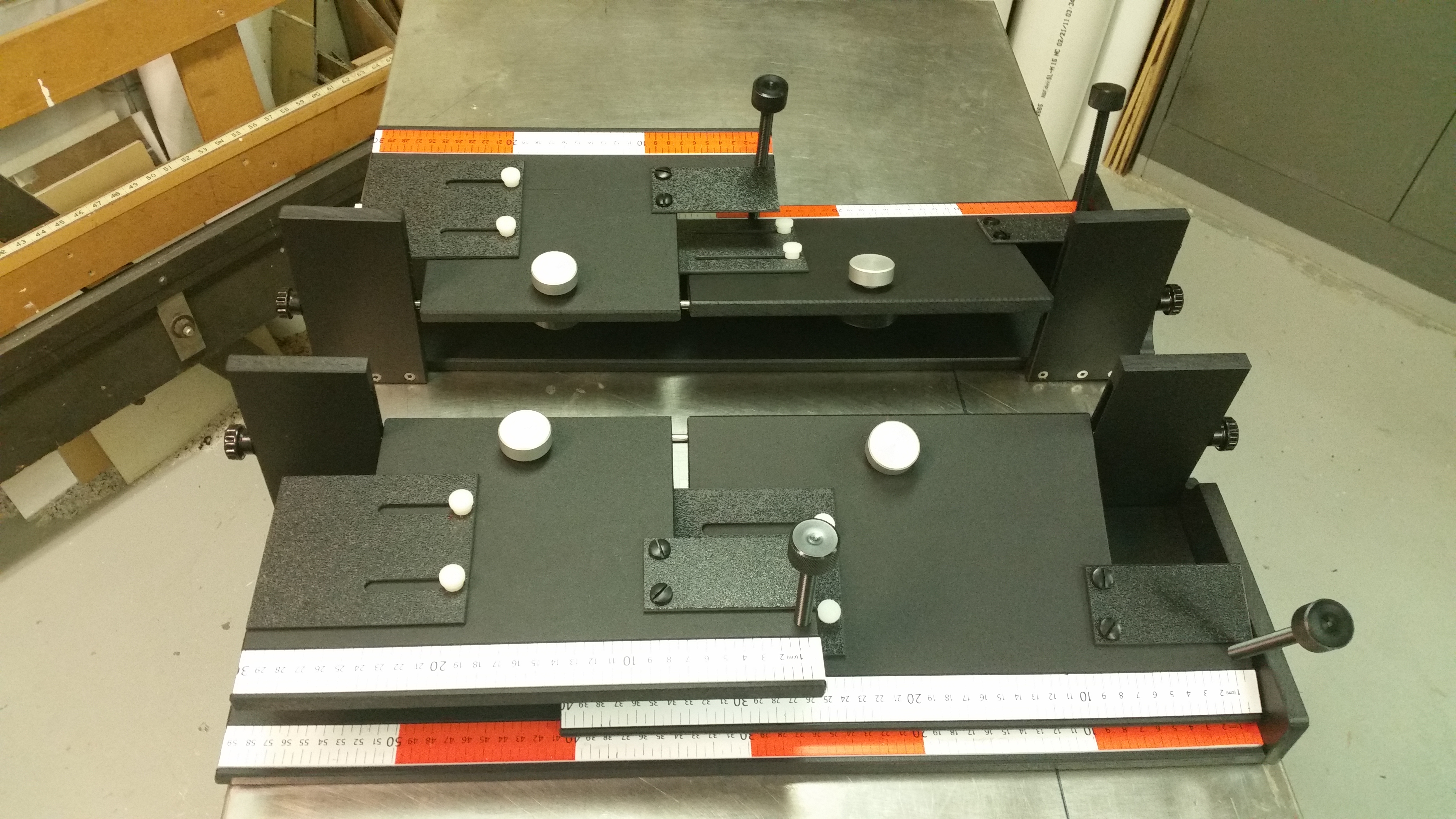SHOP SERVICES
ELECTRONICS
Shop Services
- Personnel
Bruce Williams, the shop manager and instrument maker in the Kennedy Center, has many years experience in the field and will work effectively with investigators to produce the desired instrument. Roger Williams also is an instrument maker and works to develop projects for the investigators.
- Facilities
The machine shop in the Hobbs Building is well-equipped with state-of-the- art machine tools. Do not expect to use the machine shops yourself; this is an insurance restriction. Also, do not expect to borrow tools. For individual use there is a small auxiliary machine shop in Wilson Hall that is equipped with a drill press, a band saw, a table saw and various tools and .
- Procedure
The costs for materials are paid by the investigator and the shop will help with determining what and where to buy. The machinists have a great deal of experience. At the beginning of a job schedule, the machinist will give a consultation to clarify the conception and design. The shops module staff often can suggest cost savings by using commercially available components or by using machining approaches that are more economical. If no strategy is clear, they contact the shop module director who can generally suggest a realistic solution.
- Special Note
Because the Core shares the Kennedy Center, CICN, VVRC, care must be taken to insure equitable access. Small jobs such as emergency repairs, light fabrication, or diagnosis can be scheduled for Fridays only. There is a regular job queue list that will determine the order of every job. This list is updated regularly and posted on the web (Shop Job Schedule to the left), to let all investigators see what their job status is.
Additional Information on using the service of the Machine Shop
Design: You should prepare detailed drawings, carefully including all relevant measurements. The importance of this step cannot be overstated. Many jobs have had to be redone as a result of measurement errors. If possible, if a device is to be attached to some other fixture, bring that fixture to the machine shop so there is no confusion over measurements or unanticipated spatial conflicts. While proper machine drawings are ideal, the machinists have experience working with sketches, provided all the details are clear.
Job specification: Once the design details have been clarified, the machinists can estimate the labor and material costs. A date of completion can be estimated but cannot be guaranteed due to unanticipated jobs of higher priority. Therefore, allow plenty of time for your project. Insure that you understand your needs completely before designing your devise or buying anything to be used in its production. Projects can be unsuccessful because of bad concepts and inappropriate material purchased, combined with the urge to try to make it work anyway.
Materials: The machine shop generally fabricates in aluminum, steel or plastics. Special alloys such as stainless steel are available if necessary for the application. The cost of a project is based on three factors: labor, materials, and tooling (machine wear). The machinists can provide guidance about the correct material based on your projects needs and optimizing for cost. Note that it is usually more economical to use prefabricated commercial units (e.g., aluminum boxes for circuits) than to have such items made in the shop due to the expense of labor and tooling. Material costs are charged to individual investigators.
Current Neuroscience Shop Job List PDF Formatted Job List
Would you like to request a job? Click on the image below to be redirected to the official job request RedCap form.
Electronics
The position of electronics engineer is available to help VVRC principal investigators and their research labs to solve issues related to electronic research equipment.
A few examples of problems that the electronics engineer can help with include:
- Identifying a component in a circuit and locating replacements online*
- Troubleshooting circuits and repairing faulty electrical connections
- Designing analog circuits to control solenoids or motors
- Setting up a Raspberry Pi or Arduino to accomplish a task
- Estimating supply costs for an electronics project if the parts are not already available
* for the PI to purchase with his or her own funds
Essentially, the electronics service is being paid for by the core grant but extra supplies are not. As such, any necessary supplies will have to be ordered by the principal investigator on a per project basis.
To request a service, you can contact the electronics engineer via email or in person. Please also fill out a REDCap service request form at this link.
VVRC Electronics Lab FAQs
- Where is the VVRC Electronics Lab?
Room 520 in Wilson Hall (the Psychology Department building).
- Who can use the VVRC Electronics Lab service?
Anyone associated with VVRC can request Electronics Lab services. This includes investigators, research staff, and students.
- How do I use the VVRC Electronics Lab?
First, contact the electronics engineer in person or via email with the request to help both parties become acquainted with the project. Informal meetings are welcome. Upon discussion with the engineer, please fill out a REDCap form to have the order placed in the system.
- How long does it take to have my work completed?
Your time is valuable! The engineer’s foremost goal is to help VVRC researchers with their projects. The engineer will attempt to abide by the order in which the assignments were received. If you have a deadline to meet, an accommodation can be made pending consultation with the engineer.
Would you like to request a job? Click on the image below to be redirected to the official job request RedCap form.




